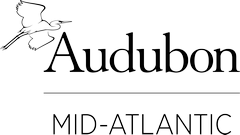Audubon’s Baltimore team designs and implements conservation projects that use nature-based, greening solutions to address urgent environmental and community health needs, such as extreme heat, flooding, and insufficient public green space while fostering community ownership and multi-lingual interpretive signage and project facilitation, when needed. These projects will offer critical habitat for resident and migratory birds and enhance climate resilience by cooling communities, capturing carbon, fostering a healthier Chesapeake Bay, and creating accessible green spaces in communities of color. We collaborate with local organizations and public agencies, providing expertise in project management to create and enhance healthy urban forests, meadows, and pocket parks for migratory birds while incorporating community input at all stages of project planning.
We are currently working with partners on a large-scale project in the Lakeland community in southwest Baltimore. The neighborhood, adjacent to Lakeland Park, is near the trash incinerator and several industrial sites that impact air quality. Residents use the park's open areas for daily activities and community events. However, residents note that they avoid the forested area, an ecologically degraded site dominated by invasive plants, fallen trees, litter, and steep terrain. Our community-centered conservation approach seeks to create wider, more accessible paths with bilingual signage and benches to stop and rest in the forest. To further deepen community connections to the forest, we work with partners to incorporate forest and migratory bird themes into community events and engage neighbors in the design and planting events for the pollinator habitat we will co-create at the forest edge.
In the Broadway East and Pigtown neighborhoods, the Audubon team are working with community members to transform empty spaces into flowering public garden, supporting beneficial insects and birds with meadow-like habitats. Similar collaborative projects have been successful in a number of Baltimore neighborhoods, and we are building on our prior successes to add to the buffet of native plant habitats for birds and butterflies.
How you can help, right now
Donate to Audubon
Help secure the future for birds at risk from climate change, habitat loss and other threats. Your support will power our science, education, advocacy and on-the-ground conservation efforts.
Become a Monthly Donor
Donating monthly is flexible, easy and convenient and makes you a champion birds can count on, no matter the season
Birds Need You!
Get involved in helping to preserve our birds and their habitats today. There is something for everyone!





